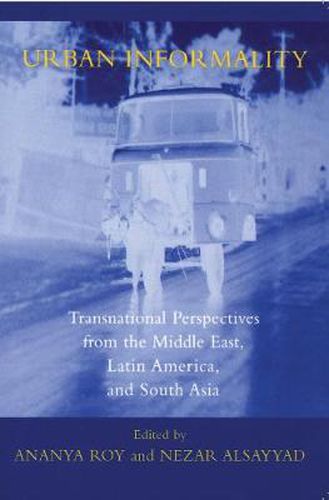Urban Informality: Transnational Perspectives from the Middle East, Latin America, and South Asia

Urban Informality: Transnational Perspectives from the Middle East, Latin America, and South Asia
The turn of the century has been a moment of rapid urbanization. Much of this urban growth is taking place in the cities of the developing world and much of it in informal settlements. This book presents cutting-edge research from various world regions to demonstrate these trends. The contributions reveal that informal housing is no longer the domain of the urban poor; rather it is a significant zone of transactions for the middle-class and even transnational elites. Indeed, the book presents a rich view of ‘urban informality’ as a system of regulations and norms that governs the use of space and makes possible new forms of social and political power. The book is organized as a ‘transnational’ endeavor. It brings together three regional domains of research-the Middle East, Latin America, and South Asia-that are rarely in conversation with one another. It also unsettles the hierarchy of development and underdevelopment by looking at some First World processes of informality through a Third World research lens.
This item is not currently in-stock. It can be ordered online and is expected to ship in approx 2 weeks
Our stock data is updated periodically, and availability may change throughout the day for in-demand items. Please call the relevant shop for the most current stock information. Prices are subject to change without notice.
Sign in or become a Readings Member to add this title to a wishlist.


